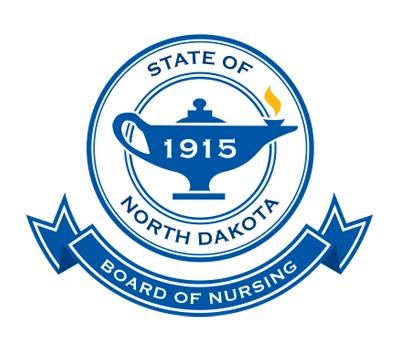Have questions about nursing licensure in North Dakota? Our Frequently Asked Questions page has you covered with clear answers to common inquiries about applications, renewals, and more. Explore this resource to find the information you need, quickly and easily.
Yes. All individuals seeking reinstatement, reactivation, or initial licensure or registration as a nurse or unlicensed assistive person (UAP) in the state of North Dakota must submit, along with the other requirements for licensure/registration, the required documents and fee to BCI for the purpose of obtaining a Criminal History Record Check (CHRC) from the Bureau of Criminal Investigations (BCI) and the Federal Bureau of Investigations (FBI).
The Board of Nursing has a responsibility to exclude individuals who pose a risk to the public health and safety from licensure/registration. Nursing care is often of an intimate physical nature which affords nurses/UAPs access to information about a client as well as to the client’s personal property and loved ones in a way that is not available in a business or social relationship or to the public.
Another major reason to implement CHRC relates to the interstate Nurse Licensure Compact (NLC). North Dakota, as a participatory state that has enacted the NLC, must meet uniform core requirements to participate in the compact. A uniform core requirement of the NLC is that CHRC be conducted prior to a license being granted. North Dakota has agreed to comply with this requirement and must do so in order to continue participation in the NLC.
The past system relied on self-disclosure of criminal history information by the individual applying for a license or registration.
Self-disclosure by individuals is not the best means of public protection available to regulatory boards. The Board of Nursing does not have verification that the individual has disclosed the information other than by the word of the applicant. CHRC is used to verify that information disclosed is truthful and constitutes full disclosure. Individuals who are not worthy of the public’s trust are excluded from practice.
Once a license or registration is issued, it becomes a property right. It is safer for the public and more cost effective and efficient to deal with the issues prior to the issuance of a license or registration rather than after such a property right has been granted.
Yes. The Board may grant eligibility to take the examination and issue a 90-day non-renewable work authorization to practice as a graduate nurse to an applicant for initial license by examination who has applied for a CHRC within 60 days of graduation, provided the applicant has met all other licensure requirements.
Yes. The board may grant a 90-day non-renewable temporary permit to an applicant for initial licensure by endorsement who has applied for a CHRC provided the applicant has met all other requirements for the temporary permit.
Yes. The board may grant a 90 day non-renewable temporary permit to an applicant for initial or reactivation registration who has applied for a CHRC provided the applicant has met all other requirements for the temporary permit.
The length of time to receive the work authorization or temporary permit will vary depending on the applicant’s circumstance. The Board may grant a nonrenewable temporary permit or work authorization to an applicant for initial licensure or registration who has applied for a CHRC provided the applicant has met all other licensure or registration requirements.
If your previous CHRC was completed within the past 180 days, you are not required to submit to an additional CHRC. This also applies to obtaining other registrations/licenses; i.e., UAP to MA, UAP to LPN, LPN to RN, RN to APRN.
No. At this time, an individual currently licensed or registered in ND will not be required to obtain a CHRC for licensure/registration renewal.
The Board of Nursing will continue to make decisions on a case-by-case basis. Each case is examined individually and a determination whether or not to grant a license or registration to an individual is based on the facts of the case.
The individual applicant for licensure or registration is responsible for all costs associated with CHRC. Please view the Criminal History Record Check link on this website for the most current fees. The cost for the fingerprinting will vary dependent upon the local law enforcement agency or private companies that provide fingerprinting services.
No. An additional CHRC would need to be completed as required by the Board of Nursing. Fingerprints submitted to other agencies cannot be used by the Board of Nursing to obtain criminal history record checks from the BCI and the FBI. According to the CFR, Section 50.12…“records obtained from the FBI may be used solely for the purpose requested and may not be disseminated outside the receiving department, related agency or other authorized entity”.
The Bureau of Criminal Investigations will process the requests as quickly as possible. However, it is important that you plan ahead! Your license/registration will not be issued until your CHRC report has been reviewed and approved for processing.
You will not be approved for licensure/registration without providing the Board with information concerning the offense. Failure to disclose an offense must be explained to the Board of Nursing in writing and may result in disciplinary action, including denial of licensure or registration.
Crimes: If you have ever been convicted, entered a plea of guilty, nolo contendere, or no contest, for any felony or misdemeanor offense(s); includes if a conviction has been pardoned, dismissed, expunged, sealed, stayed, deferred, or suspended; or if you have netered into any agreement by which an offense would be dismissed upon completion of certain terms.
License Discipline: All prior or current disciplinary action against another professional license must be reported, whether it occurred in ND or in another state or country.
CHRC Menu
Contact Us
Follow Us
Page Last Modified: March 13, 2025


